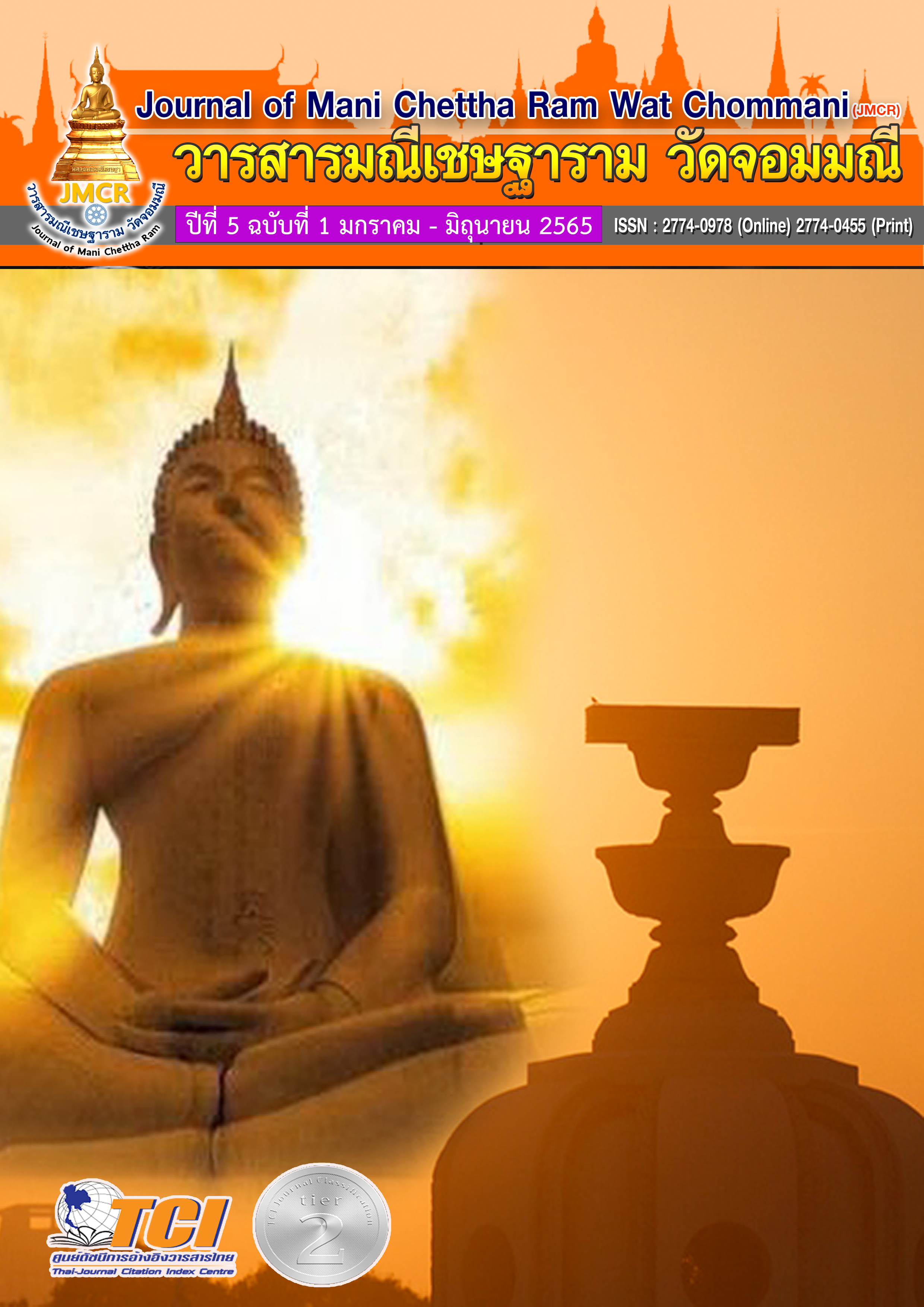The Role of Monks in Development of Thai Society
Keywords:
Monks, Developmen, Socially Engaged BuddhismAbstract
The objectives of the research 1) to study economic and social problems causing monks to have self-realization in participation in problem alleviation and social development, 2) to study operation activities, problems and obstacles of the monks’ role in Thai society development, and 3) to propose guidelines in development of the role of monks in Thai society development. The data of this qualitative research were collected from documents, in-depth interviews with 20 key-informants and focus group discussions with 14 key-informants. The results of the study were found that: 1. The people have to confront with economic problems, i.e. poverty and the spread of COVID-19, and social problems, i.e. declination of ethics and morality, educational inequality, and regression of faith in Buddhism. These problems realize a number of monks in taking part for reducing the government burden in problem resolution and social development to improve the life quality of people. 2. There are 4 kinds of Sangha affairs; religious studies, educational welfare, Buddhist propagation, and public welfare. Monks have established saving group, provided assistances and free education to poor children, Establish Pariyattidhamma schools, Buddhist Sunday Schools, The Five Precepts Village Project, and Happy Temple and People Project, The Dhamma principles applied and integrated are Tisikkha, Saraniyadhamma, Sangahavatthu, Sappurisadhamma, and Sufficiency Economy. The problems and obstacles in activity are the lack of supportive budget from the government sectors and private sectors. 3. The guidelines in development of the monks’ role in Thai society development as follows: 1) Internal development of the monks’ role by establishing oneself on the Three Saddhamma: Pariyatti, Patipatti, and
2) External development of the monks’ role by building network and systematic integration




